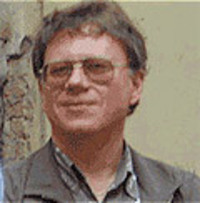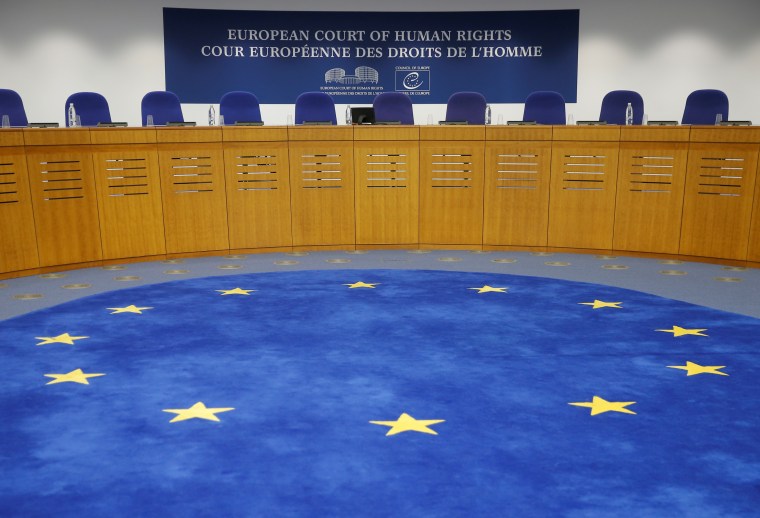Rimma Maksimova spent the final decade of her life fighting two battles: one against the bone cancer that would eventually kill her and another for justice in her son’s murder. A few years before her death in 2014, she filed a case against Russia with the European Court of Human Rights (ECHR). She would not live to see its judgment released this month or know of her contribution to the global fight against impunity in the murders of journalists.
Maksim Maksimov, a 41-year-old investigative reporter for the St. Petersburg weekly magazine Gorod, disappeared on June 29, 2004. Colleagues said he didn’t return after going to meet a source in the city’s downtown business district on June 29; police found his car parked near a local hotel a month later. On November 30, 2006, he was declared dead by the Dzerzhinsky District Court in St. Petersburg — more than two years after he was reported missing.
On October 19, 2021, the ECHR found that Russian authorities violated Article 2 of the European Convention on Human Rights by failing to conduct an effective investigation into the disappearance and alleged murder of Maksimov. Though long in the making, the news was welcomed by CPJ as an advance both in his case and for journalists around the world seeking justice.

Russian investigative journalist Maksim Maksimov disappeared on June 29, 2004
Maksimova discovered her son’s disappearance after traveling from her home in Potsdam to St. Petersburg in early July 2004 to visit him for his birthday. Around that time he had been investigating corruption in the local section of the Ministry of Internal Affairs, colleagues told CPJ. Maksimova spent weeks hounding the police and waiting hours in the office of the district prosecutor trying to find out what steps were being taken. She found that key interviews had not been conducted, without explanation – one of many unanswered questions about the authorities’ handling of the case that would come up in the years to follow.
Despite the fragile state her cancer treatment left her in, she relentlessly pushed for justice. She wrote letters to officials at all levels of Russia’s criminal system and appealed to President Vladimir Putin, including in a 2006 open letter published in Moscow Pravda titled “Will the President hear a mother’s voice?” She traveled frequently to St. Petersburg to meet with officials, seeking answers, petitioning for personnel changes or for the resumption of the investigation which was suspended on more than one occasion. At nearly every turn she was ignored or rebuffed. Following one visit with the general prosecutor of the Northwestern Federal District in 2011, Maksimova told CPJ “I had a nervous breakdown and contracted pneumonia, so they sent me to [the] airport in a wheelchair.”
In 2009 Maksimova relayed her deep frustration and desperation to Nina Ognianova, CPJ’s Europe & Central Asia program coordinator at the time. She told Ognianova she was ready to give up. Hoping to find one last avenue, CPJ approached the London-based European Human Rights Advocacy Centre (EHRAC), which specializes in bringing cases to the ECHR. They accepted the case and worked doggedly with Maksimova over the two years to compile statements and evidence.
In June 2011, EHRAC lodged Maksimova and Kapustin v. Russia with the ECHR. Sergey Mikhaylovich Kapustin, a relative of Maksimov, was added as a complainant in recognition of Maksimova ’s deteriorating health and the possibility she would not live to see the case through. That possibility became a reality when Maksimova died on September 24, 2014. By then the case had made little progress.
EHRAC’s submission argued that Russia was responsible for several violations of the European Convention. In violation of Article 2, which addresses right to life, it argues a “substantive aspect,” asserting that police officers were involved in perpetrating the crime and that there was a violation of the “procedural aspect,” noting key steps that were not taken in the investigation. It also argues there was a violation of Article 3, “No one shall be subjected to torture or to inhuman or degrading treatment or punishment,” in connection to the suffering imposed on Maksimova. Of these the Court found only the Article 2 complaints admissible and Russia in violation of the procedural but not the substantive aspect.
The Court’s judgments are not often followed by prosecutions in journalists’ killings, particularly in Russia, but they play an important role in keeping alive cases like Maksimov’s, forcing evidence to light and spotlighting systemic impunity. Maksimov’s is the latest judgment on several journalist killings in Russia, which ranks 10th in CPJ’s 2021 Global Impunity Index. In 2018 the Court found Russian authorities failed to take adequate steps to investigate the 2006 murder of Anna Politkovskaya and in 2021 it rendered a similar judgment in the 2009 murder of Natalya Estemirova. According to CPJ data, at least 58 journalists and media workers have been killed in Russia in relation to their work since 1992.
Maksimov’s killers may remain at large and in truth it is unlikely they will be officially identified and brought to brook, but this judgment, and others like it, send a message that investigations will be scrutinized, and accountability sought. Maksimova’s unceasing quest for justice for her son has made that message stronger.
